Top 6 Health Benefits of Natto
Natto is incredibly well-known in Japan, despite the fact that few people outside of Asia have ever heard of it. This fermented dish has an unusual texture and ... read more...a startling odor. In fact, many claim it takes some getting used to. You shouldn't let this discourage you, though. Natto is very nutrient-dense and associated with a number of health advantages, from stronger bones to a heart and immune system that are healthier. This article discusses why natto is so nutrient-dense and why you should think about trying it.
-
Natto is super nutritious. It contains good levels of many nutrients that are important for optimal health. A 3.5-ounce (100-gram) portion provides the following:
- Calories: 212
- Fat: 11 grams
- Carbs: 14 grams
- Fiber: 5 grams
- Protein: 18 grams
- Manganese: 76% of the RDI
- Copper: 33% of the RDI
- Vitamin K1: 29% of the RDI
- Magnesium: 29% of the RDI
- Calcium: 22% of the RDI
- Vitamin C: 22% of the RDI
- Potassium: 21% of the RDI
- Zinc: 20% of the RDI
- Selenium: 13% of the RDI
Along with antioxidants and other healthy plant chemicals, natto also contains trace levels of pantothenic acid, vitamin B6, folate, and vitamin B6. Because the fermentation of the soybeans used to make natto fosters the development of probiotics, it is particularly nutrient-dense. Probiotics are helpful bacteria that have several health advantages. Making food more digestible has the advantage of making it simpler for your body to absorb the nutrients from it. This is one of the arguments in favor of natto's nutritional superiority over cooked soybeans. In comparison to non-fermented soybeans, natto also has fewer antinutrients and more advantageous plant components and enzymes.
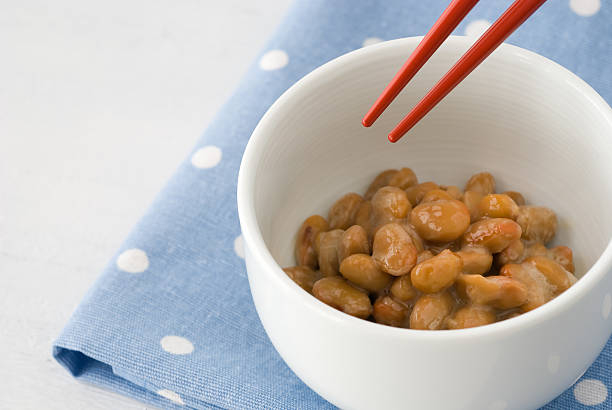
Rich in Several Nutrients 
Rich in Several Nutrients -
There are a trillion bacteria in your gut, which is more than ten times the number of cells in your body. Improved digestion is only one of the many health advantages associated with having the correct kind of bacteria in your gut. Your gut's first line of defense against toxins and dangerous microorganisms can be the probiotics in natto. According to research, probiotics can help with symptoms of inflammatory bowel disease (IBD), Crohn's disease, and ulcerative colitis as well as gas, constipation, antibiotic-associated diarrhea, and bloating. 5–10 billion colony-forming units (CFUs) are included in the majority of probiotic-rich foods and supplements per serving. Natto, in contrast, has a gram-level CFU content of between one million and one billion.
As a result, natto has a probiotic content per gram that is almost equal to that of a whole serving of the majority of other probiotic-rich foods or supplements. Additionally, soybeans have antinutrients in them by nature, which can make it more challenging for your body to digest them. Additionally, antinutrients may lessen the number of nutrients your body receives from food and in some people, may result in bloating or nausea. It's interesting to note that natto fermentation aids in the reduction of antinutrient levels naturally present in soybeans, improving their digestion.

Improve Your Digestion 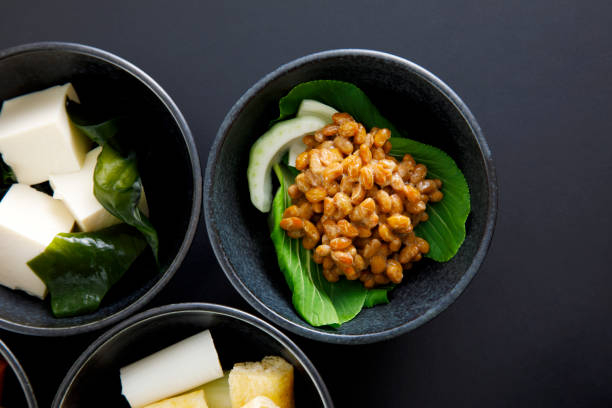
Improve Your Digestion -
Several nutrients that support strong bones are abundant in natto. Beginning with calcium, the primary mineral present in your bones, 3.5 ounces (100 grams) of natto delivers 22% of the recommended daily intake (RDI) for this mineral (1). Natto is also one of the few plant sources of vitamin K2 that is available. By activating bone-building proteins that help get calcium into your bones and maintain it there, vitamin K2 plays a crucial function in bone health. Contrast it with vitamin K1, which is crucial for blood clotting, to avoid confusion. For reference, natto includes both K1 and K2 vitamins.
According to studies, vitamin K2 supplementation can delay the bone mineral density loss associated with aging and may lower the risk of some types of fractures by between 60 and 81 percent. But some of the research on vitamin K2 and bone health employed extremely high supplement dosages. Although eating natto can increase your vitamin K2 levels, it is unknown whether doing so on its own would have the same positive effects.
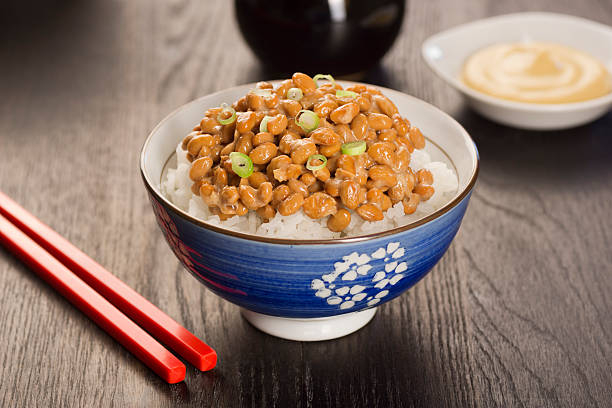
Contributes to Stronger Bones 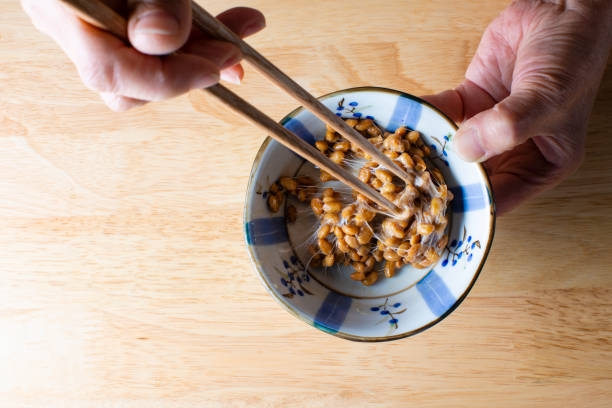
Contributes to Stronger Bones -
Additionally, natto might support heart health. That's in part because it has probiotics and fiber, both of which can aid in lowering cholesterol levels. Natto fermentation also yields nattokinase, an enzyme that aids in dissolving blood clots. The "stringy section" of the natto appears to have the highest concentration of it. Additionally, according to Japanese researchers, natto may help lower blood pressure by deactivating the ACE, an enzyme that aids in blood pressure regulation. In fact, multiple studies demonstrate that nattokinase supplements lowered blood pressure in people with initial blood pressure readings of 130/90 mmHg or greater by about 3-5.5 mmHg.
In addition to making your bones stronger, natto's vitamin K2 helps keep calcium from building up in your arteries. According to one study, eating foods high in vitamin K2 regularly was associated with a 57% lower chance of dying from heart disease. In another trial with just female participants, every 10 mcg of vitamin K2 eaten daily was associated with a 9% lower risk of heart disease. 3.5 ounces (100 grams) of natto is equivalent to around 10 milligrams of vitamin K2 per meal.
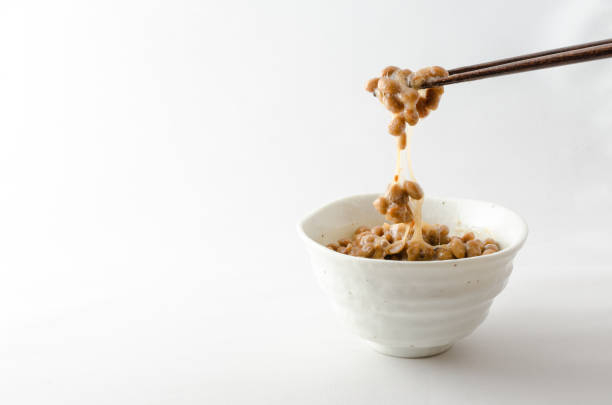
Promotes Heart Health 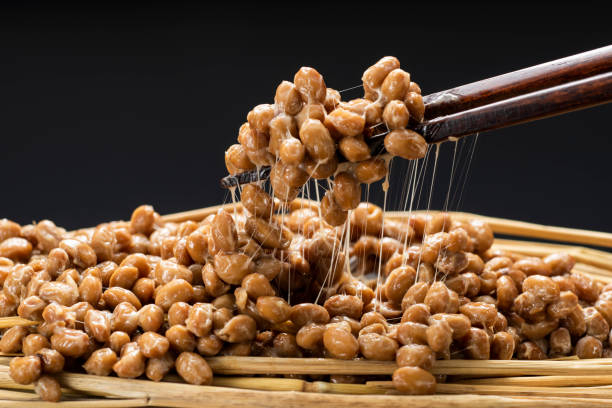
Promotes Heart Health -
Numerous nutrients in natto may support a stronger immune system. To start, foods high in probiotics like natto support balanced gut flora. In turn, a balanced gut flora hinders the development of dangerous bacteria and may even increase the production of natural antibodies in your body. Probiotics also lower your risk of infection and may hasten your recovery time if you do become ill. In one study, elderly participants received either a placebo or 2 billion CFU of B. subtilis, the probiotic strain present in natto. Over the course of the four-month research, those who received the probiotic strain had a 55% lower chance of developing a respiratory illness.
Additionally, eating a diet high in probiotics may lower the chance of having antibiotics to recover from infection by about 33%. Natto is high in probiotics and is also high in vitamin C, iron, zinc, selenium, and copper, all of which are essential for immune system health.

May Strengthen Your Immune System 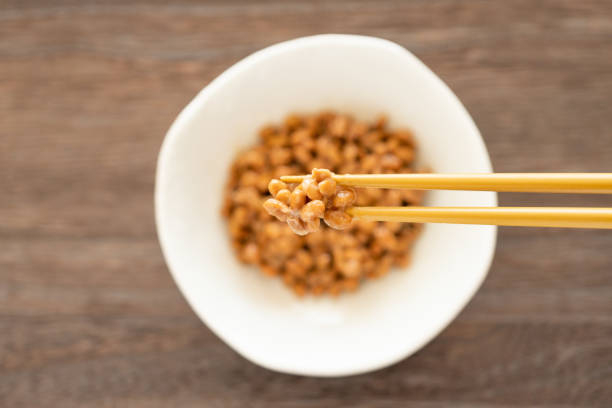
May Strengthen Your Immune System -
Studies have also demonstrated that natto can thin mucus and reduce nasal polyps that cause sinus blockages. Those who experience chronic sinusitis might benefit significantly from this. When you have persistent sinus irritation brought on by conditions like allergies, bacteria, fungal infections, or even asthma, you are said to have chronic sinusitis. It is thought that consuming natto will help the person's airflow, making it easier for them to breathe.
Natto is similar to most superfoods in that it can help you lose weight if you use it properly and follow the guidelines for regular activity. Natto is thought to have above-normal levels of probiotics and fiber, two nutrients that have historically helped people avoid gaining weight. Instead, they help the body shed weight as much as possible.
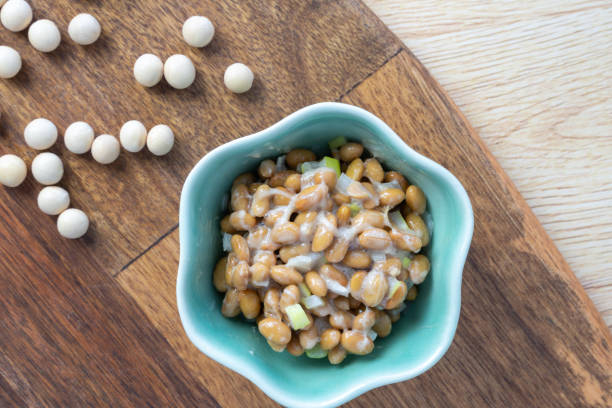
Improve Sinus Health and Assist in Weight Loss 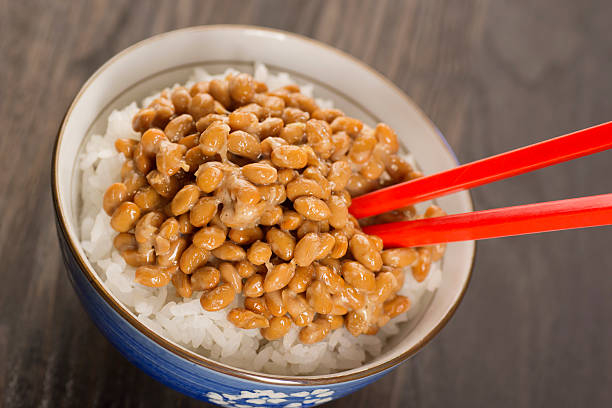
Improve Sinus Health and Assist in Weight Loss



























